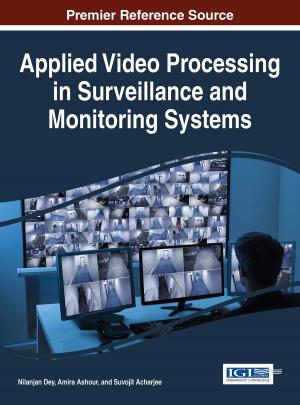Internet and Distributed Computing Advancements
Theoretical Frameworks and Practical Applications
Nonfiction, Computers, Advanced Computing, Parallel Processing, General Computing, Internet| Author: | ISBN: | 9781466604193 | |
| Publisher: | IGI Global | Publication: | February 29, 2012 |
| Imprint: | Information Science Reference | Language: | English |
| Author: | |
| ISBN: | 9781466604193 |
| Publisher: | IGI Global |
| Publication: | February 29, 2012 |
| Imprint: | Information Science Reference |
| Language: | English |
As software and computer hardware grows in complexity, networks have grown to match. The increasing scale, complexity, heterogeneity, and dynamism of communication networks, resources, and applications has made distributed computing systems brittle, unmanageable, and insecure. Internet and Distributed Computing Advancements: Theoretical Frameworks and Practical Applications is a vital compendium of chapters on the latest research within the field of distributed computing, capturing trends in the design and development of Internet and distributed computing systems that leverage autonomic principles and techniques. The chapters provided within this collection offer a holistic approach for the development of systems that can adapt themselves to meet requirements of performance, fault tolerance, reliability, security, and Quality of Service (QoS) without manual intervention.
As software and computer hardware grows in complexity, networks have grown to match. The increasing scale, complexity, heterogeneity, and dynamism of communication networks, resources, and applications has made distributed computing systems brittle, unmanageable, and insecure. Internet and Distributed Computing Advancements: Theoretical Frameworks and Practical Applications is a vital compendium of chapters on the latest research within the field of distributed computing, capturing trends in the design and development of Internet and distributed computing systems that leverage autonomic principles and techniques. The chapters provided within this collection offer a holistic approach for the development of systems that can adapt themselves to meet requirements of performance, fault tolerance, reliability, security, and Quality of Service (QoS) without manual intervention.















